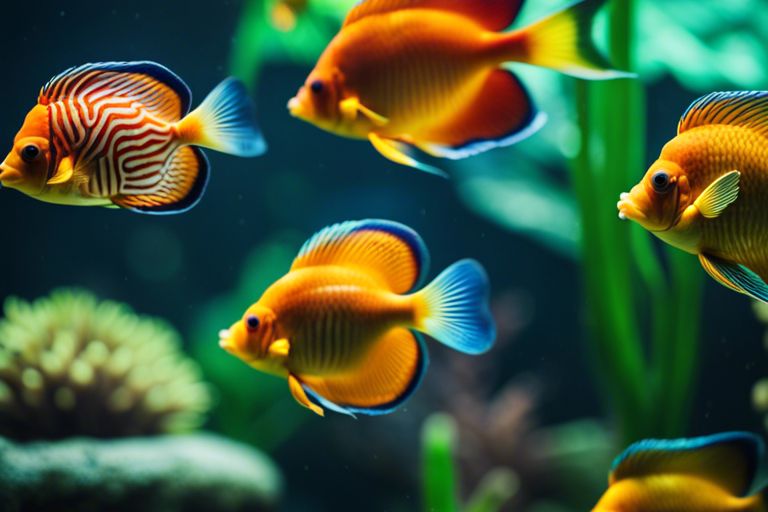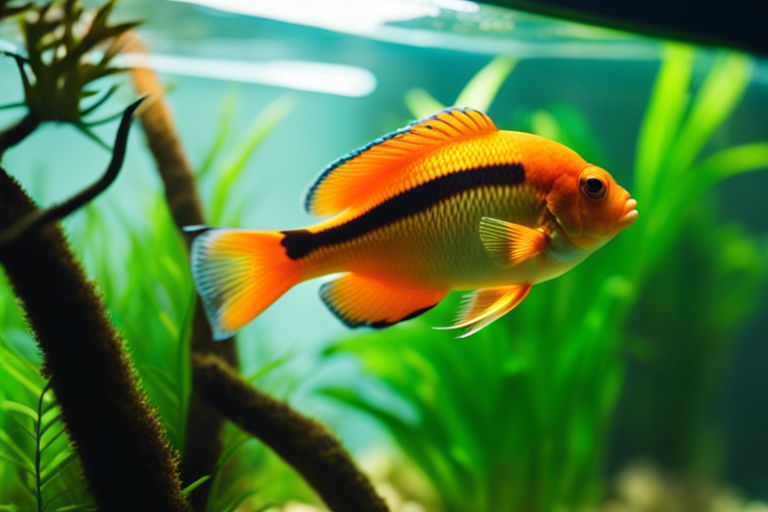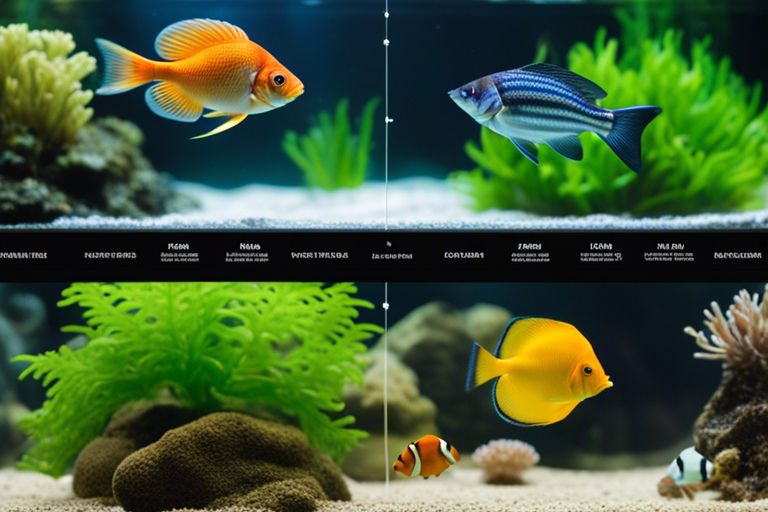You, as an advanced aquarist, have likely researchd deep into the world of fishkeeping, mastering the art of caring for a variety of species. Today, we turn our attention to the fascinating realm of exotic fish species that are sure to captivate even the most seasoned aquarium enthusiasts. From shimmering discus fish to the intricate patterns of the mandarinfish, the diversity of exotic fish available to aquarists is truly remarkable. Join us as we take a closer look at some of the most stunning and unique species that will add a touch of magic to your underwater world.
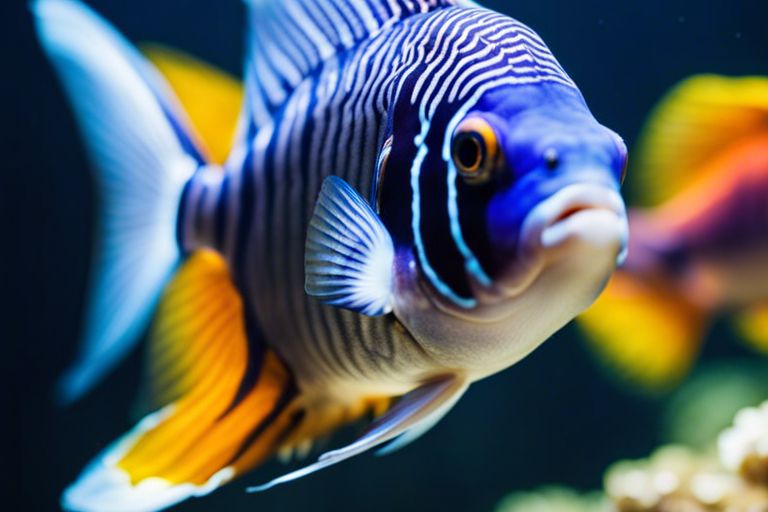
Exotic Freshwater Fish Species
Rare and Colorful Cichlids
Fish enthusiasts looking to add a pop of vibrant color to their aquariums should consider rare and colorful cichlids. These elegant fish come in a wide range of shades, from dazzling blues and yellows to fiery reds and oranges. Some sought-after varieties include the Flowerhorn Cichlid, Discus, and Angelfish. With their unique markings and striking hues, these cichlids are sure to captivate any advanced aquarist.
Unique Labyrinth Fish
Species of labyrinth fish, such as Betta fish and Gouramis, are known for their labyrinth organ, which allows them to breathe air directly from the surface. These stunning fish come in an array of colors and fin shapes, making them a favorite among aquarists looking for a unique addition to their tanks. Their labyrinth organ also means they can thrive in oxygen-deprived waters, making them adaptable and fascinating creatures to observe.
Rare and captivating labyrinth fish like the Licorice Gourami and the Betta mahachaiensis are highly sought after by experienced aquarists for their intricate behaviors and stunning appearances. These unique fish require specific care to thrive, but the effort is well worth it for those looking to add a touch of intrigue to their aquarium.
Exotic Saltwater Fish Species
Distinctive Clownfish Varieties
Some of the most sought-after fish for advanced aquarists are the distinctive clownfish varieties. These iconic fish come in a range of colors and patterns, from the classic orange and white to the striking black and white. With their playful personalities and unique social structures, clownfish can make a captivating addition to any expert aquarist’s collection.
Rare Wrasses and Angelfish
Exotic and rare wrasses and angelfish are a true marvel for advanced aquarists looking to add a touch of exclusivity to their tanks. These species boast vibrant colors, intricate patterns, and fascinating behaviors that make them a prized possession among hobbyists. From the elusive Flame Angelfish to the majestic Dragon Wrasse, these fish are sure to impress with their beauty and charisma.
To examine deeper into the world of rare wrasses and angelfish, it is important to understand their specific care requirements and compatibility with other tank mates. These exquisite species often require specialized diets, ample swimming space, and peaceful tank environments to thrive. Aquarists must be prepared to meet their unique needs to ensure the health and happiness of these rare treasures.
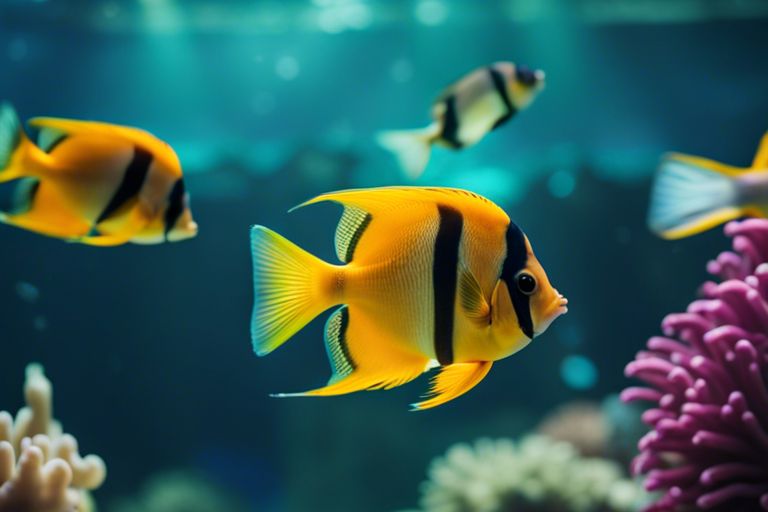
Aquarium Setups for Exotic Species
Tailoring Your Freshwater Habitat
For aquarists looking to create a vibrant freshwater habitat for exotic species, it is important to consider the specific needs of the fish. This can include factors such as water pH, temperature, and tank size. Researching the natural habitats of the exotic fish species you are interested in can provide valuable insights into their ideal living conditions.
Crafting Your Marine Sanctuary
Exotic marine species require a carefully crafted sanctuary to thrive in captivity. When designing a marine aquarium for exotic species, it is crucial to consider elements such as water flow, lighting, and coral selection. Creating an environment that mimics the natural ocean habitat of these species will contribute to their health and well-being.
Exotic marine species often come from diverse ecosystems such as coral reefs or deep-sea environments. When crafting your marine sanctuary, ensure you provide adequate hiding places, suitable water filtration systems, and proper water parameters to support the species’ specific needs. Researching each species’ requirements will help you create a successful marine habitat.
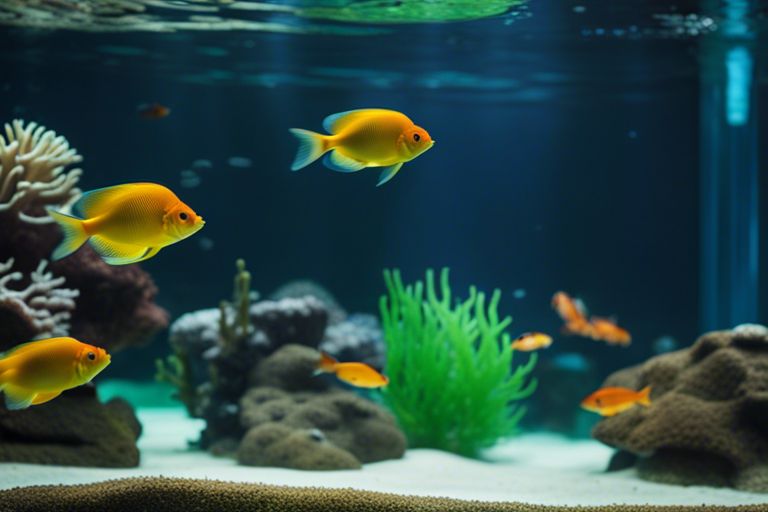
Care and Maintenance of Exotic Fish
Advanced Nutrition and Feeding Techniques
With advanced exotic fish species, ensuring a proper diet is crucial for their health and well-being. Here are some key nutritional guidelines for advanced aquarists to consider:
- Quality of Food: Ensure that the food provided is of high quality and tailored to the specific dietary needs of each species.
- Feeding Frequency: Develop a feeding schedule that meets the metabolic needs of the fish, being careful not to overfeed.
- Supplements: Consider adding supplements like vitamins or minerals to the diet to address any nutritional deficiencies.
Disease Prevention and Health Monitoring
Advanced aquarists understand the importance of proactive disease prevention and regular health monitoring for exotic fish species. It is crucial to maintain optimal water quality, monitor for any signs of illness or stress, and quarantine new fish before introducing them to the main aquarium. Additionally, performing regular health checks, such as observing the fish’s behavior, appetite, and physical appearance, can help detect early signs of disease.
It is crucial for advanced aquarists to have a thorough understanding of common fish diseases and their symptoms. Regularly monitoring water parameters, providing a well-balanced diet, and implementing proper quarantine practices are vital strategies in preventing disease outbreaks. By staying vigilant and proactive in their care routines, advanced aquarists can help ensure the health and longevity of their exotic fish species.
Ethical Considerations in Exotic Fish Keeping
Understanding the Impact of Wild Capture
To truly understand the ethics behind exotic fish keeping, it is crucial to examine the impact of wild capture. Any aquarist looking to acquire exotic species should consider the environmental implications of removing fish from their natural habitats. Overfishing and habitat destruction can have devastating effects on aquatic ecosystems and endanger fish populations.
Promoting Sustainable and Humane Practices
Impactful exotic fish keeping involves promoting sustainable and humane practices. By choosing fish that are bred in captivity or supporting responsible suppliers, aquarists can help reduce the demand for wild-caught specimens. This not only protects wild fish populations but also encourages ethical practices within the aquarium industry.
Wild-caught fish are often subjected to stressful conditions during capture and transport, leading to high mortality rates. By opting for captive-bred specimens, aquarists can ensure the well-being of the fish while contributing to conservation efforts.
Conclusion
With these considerations in mind, advanced aquarists can explore the diversity of exotic fish species to enhance their aquariums. By understanding the specific requirements and behaviors of each species, as well as the potential challenges they may present, aquarists can create unique and thriving aquatic ecosystems. Through research, proper planning, and ongoing care, aquarists can successfully include a variety of exotic fish in their tanks, adding beauty and interest to their hobby while also contributing to the conservation of these unique species.
FAQ
Q: What is the importance of exploring the diversity of exotic fish species for advanced aquarists?
A: Advanced aquarists benefit from exploring exotic fish species as it enhances their knowledge, skills, and understanding of different ecosystems.
Q: How can advanced aquarists find information about exotic fish species?
A: Advanced aquarists can gather information about exotic fish species from reputable books, scientific journals, online forums, and experienced breeders.
Q: What are some key factors to consider before adding exotic fish species to an aquarium?
A: Before adding exotic fish species to an aquarium, advanced aquarists should consider the fish’s habitat requirements, compatibility with other species, diet, and potential size.
Q: How can advanced aquarists ensure the well-being of exotic fish species in their care?
A: Advanced aquarists can ensure the well-being of exotic fish species by providing a suitable environment, maintaining water quality, monitoring behavior, and addressing any health issues promptly.
Q: What are some common challenges faced by advanced aquarists when keeping exotic fish species?
A: Common challenges include acclimating fish to a new environment, managing territorial disputes among species, preventing diseases, and reproducing specific breeding conditions.
Q: How can advanced aquarists contribute to the conservation of exotic fish species?
A: Advanced aquarists can contribute to conservation efforts by supporting sustainable practices, avoiding purchasing wild-caught specimens, and participating in breeding programs for endangered species.
Q: What are some exotic fish species recommended for advanced aquarists to explore?
A: Advanced aquarists may consider exploring species such as Discus fish, Arowanas, Dwarf Cichlids, Angelfish, and Lionfish for their striking colors, unique behaviors, and challenging care requirements.
